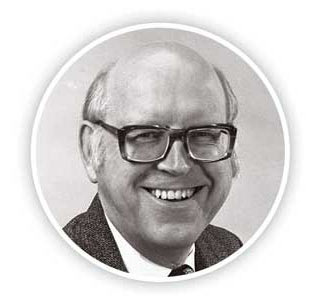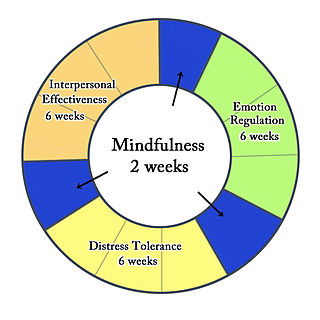Related Research Articles

A conspiracy theory is an explanation for an event or situation that asserts the existence of a conspiracy by powerful and sinister groups, often political in motivation, when other explanations are more probable. The term generally has a negative connotation, implying that the appeal of a conspiracy theory is based in prejudice, emotional conviction, or insufficient evidence. A conspiracy theory is distinct from a conspiracy; it refers to a hypothesized conspiracy with specific characteristics, including but not limited to opposition to the mainstream consensus among those who are qualified to evaluate its accuracy, such as scientists or historians.

Cognitive behavioral therapy (CBT) is a psycho-social intervention that aims to reduce symptoms of various mental health conditions, primarily depression and anxiety disorders. CBT focuses on challenging and changing cognitive distortions and their associated behaviors to improve emotional regulation and develop personal coping strategies that target solving current problems. Though it was originally designed to treat depression, its uses have been expanded to include the treatment of many mental health conditions, including anxiety, substance use disorders, marital problems, and eating disorders. CBT includes a number of cognitive or behavioral psychotherapies that treat defined psychopathologies using evidence-based techniques and strategies.

Cognitive psychology is the scientific study of mental processes such as attention, language use, memory, perception, problem solving, creativity, and reasoning.

Developmental psychology is the scientific study of how and why humans grow, change, and adapt across the course of their lives. Originally concerned with infants and children, the field has expanded to include adolescence, adult development, aging, and the entire lifespan. Developmental psychologists aim to explain how thinking, feeling, and behaviors change throughout life. This field examines change across three major dimensions, which are physical development, cognitive development, and social emotional development. Within these three dimensions are a broad range of topics including motor skills, executive functions, moral understanding, language acquisition, social change, personality, emotional development, self-concept, and identity formation.
Dialectic, also known as the dialectical method, is a discourse between two or more people holding different points of view about a subject but wishing to establish the truth through reasoned argumentation. Dialectic resembles debate, but the concept excludes subjective elements such as emotional appeal and rhetoric. Dialectic may thus be contrasted with both the eristic, which refers to argument that aims to successfully dispute another's argument, and the didactic method, wherein one side of the conversation teaches the other. Dialectic is alternatively known as minor logic, as opposed to major logic or critique.

Albert Bandura was a Canadian-American psychologist who was the David Starr Jordan Professor in Psychology at Stanford University.

Jerome Seymour Bruner was an American psychologist who made significant contributions to human cognitive psychology and cognitive learning theory in educational psychology. Bruner was a senior research fellow at the New York University School of Law. He received a BA in 1937 from Duke University and a PhD from Harvard University in 1941. He taught and did research at Harvard University, the University of Oxford, and New York University. A Review of General Psychology survey, published in 2002, ranked Bruner as the 28th most cited psychologist of the 20th century.

Allen Newell was a researcher in computer science and cognitive psychology at the RAND Corporation and at Carnegie Mellon University’s School of Computer Science, Tepper School of Business, and Department of Psychology. He contributed to the Information Processing Language (1956) and two of the earliest AI programs, the Logic Theory Machine (1956) and the General Problem Solver (1957). He was awarded the ACM's A.M. Turing Award along with Herbert A. Simon in 1975 for their basic contributions to artificial intelligence and the psychology of human cognition.

Dialectical behavior therapy (DBT) is an evidence-based psychotherapy that began with efforts to treat personality disorders and interpersonal conflicts. Evidence suggests that DBT can be useful in treating mood disorders and suicidal ideation, as well as for changing behavioral patterns such as self-harm and substance use. DBT evolved into a process in which the therapist and client work with acceptance and change-oriented strategies, and ultimately balance and synthesize them—comparable to the philosophical dialectical process of thesis and antithesis followed by synthesis.

Clinical psychology is an integration of human science, behavioral science, theory, and clinical knowledge for the purpose of understanding, preventing, and relieving psychologically-based distress or dysfunction and to promote subjective well-being and personal development. Central to its practice are psychological assessment, clinical formulation, and psychotherapy, although clinical psychologists also engage in research, teaching, consultation, forensic testimony, and program development and administration. In many countries, clinical psychology is a regulated mental health profession. Please note, a clinical psychologist is not a therapist, although they surpass the necessary skills to be one.
Robert Duncan Luce was an American mathematician and social scientist, and one of the most preeminent figures in the field of mathematical psychology. At the end of his life, he held the position of Distinguished Research Professor of Cognitive Science at the University of California, Irvine.

The analysis of competing hypotheses (ACH) is a methodology for evaluating multiple competing hypotheses for observed data. It was developed by Richards (Dick) J. Heuer, Jr., a 45-year veteran of the Central Intelligence Agency, in the 1970s for use by the Agency. ACH is used by analysts in various fields who make judgments that entail a high risk of error in reasoning. ACH aims to help an analyst overcome, or at least minimize, some of the cognitive limitations that make prescient intelligence analysis so difficult to achieve.

Elizabeth Shilin Spelke FBA is an American cognitive psychologist at the Department of Psychology of Harvard University and director of the Laboratory for Developmental Studies.
Marsha M. Linehan is an American psychologist and author. She is the creator of dialectical behavior therapy (DBT), a type of psychotherapy that combines cognitive restructuring with acceptance, mindfulness, and shaping.
Peter Hans Schönemann was a German born psychometrician and statistical expert. He was professor emeritus in the Department of Psychological Sciences at Purdue University. His research interests included multivariate statistics, multidimensional scaling and measurement, quantitative behavior genetics, test theory and mathematical tools for social scientists. He published around 90 papers dealing mainly with the subjects of psychometrics and mathematical scaling. Schönemann's influences included Louis Guttman, Lee Cronbach, Oscar Kempthorne and Henry Kaiser.

New Harbinger Publications, Inc. is an employee-owned, Oakland-based American publisher of self-help books.

Matthew Tyler Giobbi is an author and educator in the fields of music, science criticism, philosophy, media theory, psychoanalysis, and psychology. He has written A Postcognitive Negation: The Sadomasochistic Dialectic of American Psychology.

A Postcognitive Negation: The Sadomasochistic Dialectic of American Psychology is a book written by Matthew Giobbi. It was published in 2010 by Atropos Press in New York City. The text was edited by Wolfgang Schirmacher.

Amishi Jha is a professor of psychology at the University of Miami.
Mortimer Mishkin was an American neuropsychologist, and winner of the 2009 National Medal of Science awarded in Behavior and Social Science.
References
- ↑ "A Postcognitive Negation". Archived from the original on 2011-07-08. Retrieved 2011-02-28.
- ↑ "A Postcognitive Negation: The Sadomasochistic Dialectic of American Psychology". Archived from the original on 2011-07-07. Retrieved 2011-02-28.
- ↑ "Psychotherapy".
- ↑ Potter, Jonathan (February 2000). "Post-Cognitive Psychology" (PDF). Theory & Psychology. 10 (1): 31–37. doi:10.1177/0959354300010001596. ISSN 0959-3543.
- ↑ "Archived copy" (PDF). Archived from the original (PDF) on 2011-07-28. Retrieved 2011-02-28.
{{cite web}}: CS1 maint: archived copy as title (link)